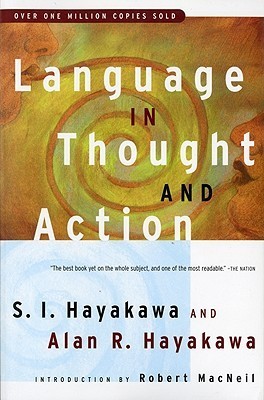What do you think?
Rate this book


224 pages, Paperback
First published January 1, 1939
The first of the principles governing symbols is this: The symbol is not the thing symbolized; the word is not the thing; the map is not the territory it stands for.
We all inherit a great deal of useless knowledge, and a great deal of misinformation and error, so that there is always a portion of what we have been told that must be discarded. It should be noticed that there are three ways of getting false maps of the world into our heads: first, by having them given to us; second, by making them up for ourselves by misreading true maps; third, by constructing them ourselves by misreading territories. But the cultural heritage that is transmitted to us—our socially pooled knowledge, both scientific and humane, has been valued principally because we believe that it gives us accurate maps of experience.
To attempt to converse in this way is to make all our social contacts occasions for what we have earlier called “the pooling of knowledge.” We can, if we are able to listen as well as to speak, become better informed and wiser as we grow older instead of being stuck, like some people, with the same little bundle of prejudices at sixty-five that we had at twenty-five.
Statements made in everyday conversation, even if based on slipshod inferences and hasty over-generalizations, can usually be found to have some modest degree of truth value. To find the needle of meaning in the haystacks of nonsense that the other fellow is talking is to learn something, even from the apparently prejudiced and uninformed. And if the other fellow is equally patient about looking for the needle of meaning in our haystacks of nonsense, he may learn something from us. Ultimately, all civilized life depends upon the willingness on the part of all of us to learn as well as to teach. To delay one’s reactions and to be able to say “Tell me more,” and then to listen before reacting…
If pictures give television its power, excessive reliance on them constitutes its weakness. Television news focuses on things it can easily symbolize visually, at the expense of things that are harder to depict. A few homeless people or a family being evicted can be televised to depict the larger problems of housing shortages and homelessness, but it’s hard to televise houses not being built, rents increasing, or employment declining. It’s easy to televise motorists in a gasoline line but hard to televise a national strategy for lessening dependence on imported oil. The visual aspect of television, adept at specifics, has trouble climbing back up the abstraction ladder to levels of greater generality and applicability.